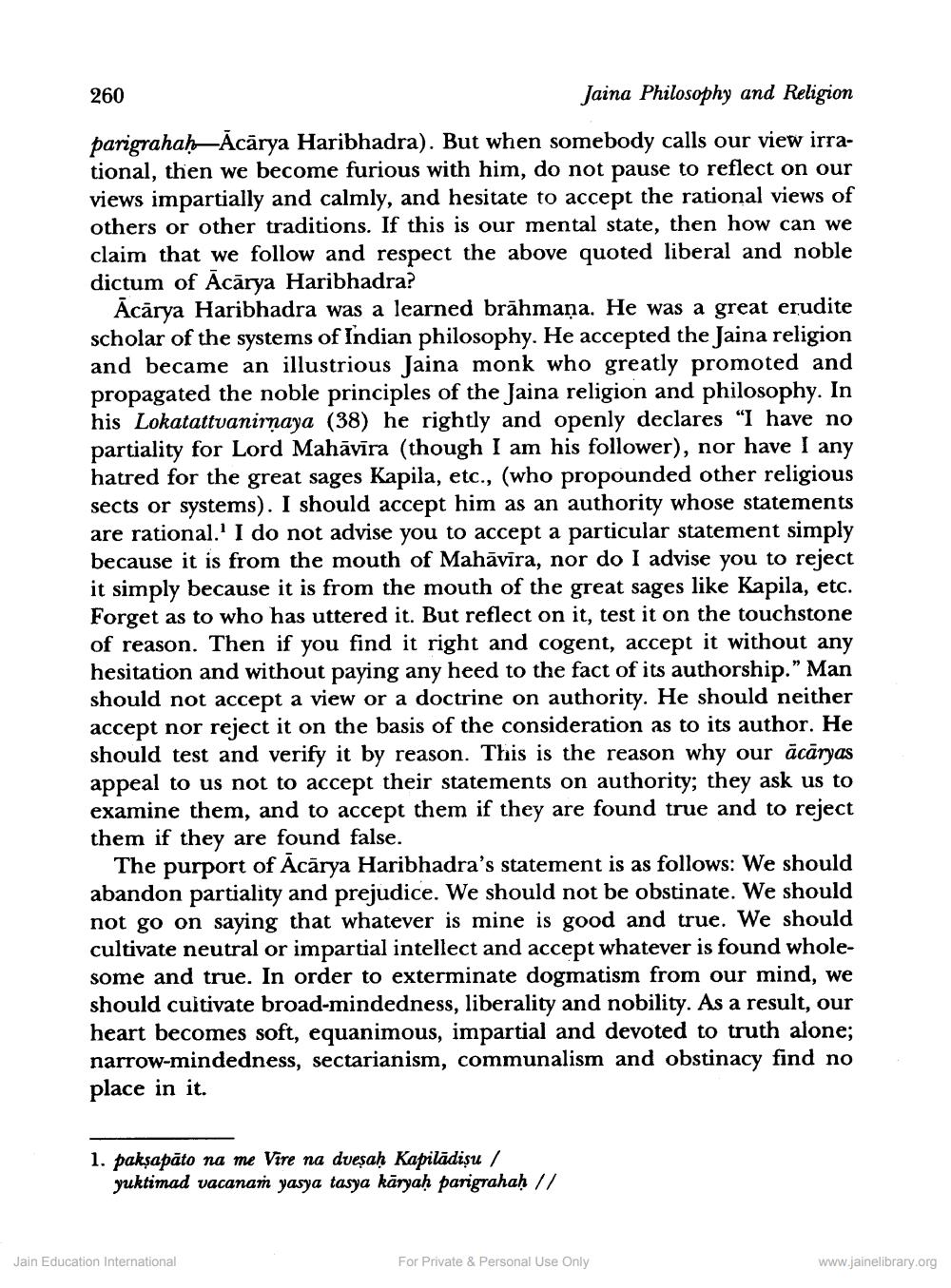________________
260
Jaina Philosophy and Religion
parigrahah Acārya Haribhadra). But when somebody calls our view irrational, then we become furious with him, do not pause to reflect on our views impartially and calmly, and hesitate to accept the rational views of others or other traditions. If this is our mental state, then how can we claim that we follow and respect the above quoted liberal and noble dictum of Acārya Haribhadra?
Acārya Haribhadra was a learned brāhmaṇa. He was a great erudite scholar of the systems of Indian philosophy. He accepted the Jaina religion and became an illustrious Jaina monk who greatly promoted and propagated the noble principles of the Jaina religion and philosophy. In his Lokatattvanirnaya (38) he rightly and openly declares "I have no partiality for Lord Mahāvīra (though I am his follower), nor have I any hatred for the great sages Kapila, etc., (who propounded other religious sects or systems). I should accept him as an authority whose statements are rational.' I do not advise you to accept a particular statement simply because it is from the mouth of Mahāvira, nor do I advise you to reject it simply because it is from the mouth of the great sages like Kapila, etc. Forget as to who has uttered it. But reflect on it, test it on the touchstone of reason. Then if you find it right and cogent, accept it without any hesitation and without paying any heed to the fact of its authorship.” Man should not accept a view or a doctrine on authority. He should neither accept nor reject it on the basis of the consideration as to its author. He should test and verify it by reason. This is the reason why our ācāryas appeal to us not to accept their statements on authority; they ask us to examine them, and to accept them if they are found true and to reject them if they are found false.
The purport of Acārya Haribhadra's statement is as follows: We should abandon partiality and prejudice. We should not be obstinate. We should not go on saying that whatever is mine is good and true. We should cultivate neutral or impartial intellect and accept whatever is found wholesome and true. In order to exterminate dogmatism from our mind, we should cultivate broad-mindedness, liberality and nobility. As a result, our heart becomes soft, equanimous, impartial and devoted to truth alone; narrow-mindedness, sectarianism, communalism and obstinacy find no place in it.
1. pakşapāto na me Vire na dveṣaḥ Kapilādiņu /
yuktimad vacanam yasya tasya kāryaḥ parigrahah //
Jain Education International
For Private & Personal Use Only
www.jainelibrary.org




